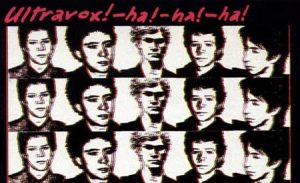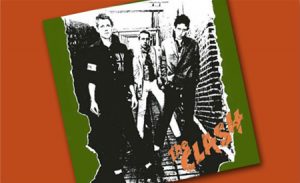I Dreamed I Was a Very Clean Tramp: An Autobiography by Richard Hell / Ecco /
978-0062190833 / 304 pages
 Where do ideas come from? How does an individual up with an idea that starts a whole movement? Does he or she think it up in a momentary flash of brilliance which causes them to have some sort of magical insight? Or is their insight born of a natural progression of events they have experienced up to that point in their lives combined with the environment they find themselves living at the time? Artistic movements don’t just spring out of the ground without any antecedents, so the people, or person, who are the motivating force behind them must have come from somewhere as well. What is it about a person, what type of personality does it take, to be the individual who shapes an entire genre of artistic expression?
Where do ideas come from? How does an individual up with an idea that starts a whole movement? Does he or she think it up in a momentary flash of brilliance which causes them to have some sort of magical insight? Or is their insight born of a natural progression of events they have experienced up to that point in their lives combined with the environment they find themselves living at the time? Artistic movements don’t just spring out of the ground without any antecedents, so the people, or person, who are the motivating force behind them must have come from somewhere as well. What is it about a person, what type of personality does it take, to be the individual who shapes an entire genre of artistic expression?
As it turns out, not very different from the rest of us in the beginning. According to his autobiography, I Dreamed I Was A Very Clean Tramp, recently published by Harper Collins Canada, Richard Hell had a pretty much normal first few years growing up in America of the 1950s. So how did this guy who was weaned on Howdy Doody and other staples of middle class America stolidity become the person most now credit with founding the look and sound of punk rock in 1974? How did this person turn into the guy behind the short spiky hair, ripped clothes held together with safety-pins and the unbridled anger and irony which was copied so faithfully by punk rock bands and its fans from the early 1970s until today?
According to Hell, his life started out conventionally enough. Born Richard Myers in 1949 in Lexington Kentucky, the son of two academics. His father parlayed a Ph.D into a professorship at University of Kentucky and his mother put off a career to raise her family. Who knows how he would have turned out if his father hadn’t died of a heart attack when he was eight years old. For he describes an incident which occurred just a few weeks before his father died. Hell and a couple of buddies were planning on running away to sleep in a cave near by. The plan was they would meet up at midnight. When his father stumbled across his preparations for running away – a stash of cookies and other foodstuffs under his pillow – instead of punishing Hell he made him a deal. He would drive his son to the cave for midnight and if his friends showed up he could stay with them. However if the friends didn’t show up he would have to come home with his dad.
According to what Hell writes, his academic career peaked in grade six and it was all downhill from there. Even though standardized testing in grade seven showed him to be one of the smartest kids in school throughout junior high school he was consistently close to failing. Although he would stay up all night in fits of anxiety over not being prepared he still couldn’t bring himself to do the work properly. He describes the feelings this evoked in him in words akin to those one would normally use to describe the symptoms of withdrawal from drugs. Even then he resented the authority teachers had over him, and he says he elicited a promise from his future adult self to never forget how arbitrary and unfair adult rules were. He promises himself a life of adventure as an adult. The most important thing to remember as he grow older is to never let anyone tell him what to do.
However tempting it is to dismiss this as the self-fulfilling prophesying of somebody trying to impress readers with how deep his anti-authority roots were planted, he wouldn’t have shown us how they were rooted in his resentment of those who were accepted by authority or the anxiety his refusal to bow to authority caused him initially if this the case. The behaviour is in keeping with a lot of kids – resentful of having to do work just because someone has told them to, but being too concerned about the consequences of not doing it to do anything about it. He shared the concerns, but still refused to do what was needed to assuage his anxiety shaping a pattern which was to continue for a good chunk of his life up until he quit music.
When he went onto high school the pattern of behaviour only intensified especially when he found another out cast to partner up with, Tom Miller. This was the beginning of a relationship that would see the creation of the seminal band Television in the early 1970s. Myers and Miller would eventually become Hell and Verlaine and be the founding fathers of New York’s punk scene. What I’ve described is a compressed version of Hell’s his early days and meeting with Verlaine. On the surface his story reads rather simplistically. Two young guys, far too smart for their own good, bored out of their minds by what the world has to offer, go looking for something, anything to stimulate their minds and imaginations.
While Verlaine was able to get some satisfaction out of forming Television and trying to perfect it, Hell was a different kettle of fish. Once the initial thrill of creating something was complete, he needed to move on to the next challenge and the next one after that. Of course the other problem with Television was the fact neither of its founders were willing to submit to anybody’s authority which resulted in inevitable conflict, If either of them had even a semblance of emotional maturity they might have been able to resolve their problems, but the truth of the matter is both Hell and Verlaine come across as emotionally crippled and completely lacking in the ability to communicate any emotion aside from contempt.

It seems like it’s almost in spite of himself Hell was able to make an impression on both his peers and others in the music industry. Music critics from local rags to the New York Times raved about his final solo album, Destiny Street, with Robert Palmer of the Times going so far as to name it the best album of 1982. In 1976 Chris Stein, lead guitar player in the band Blondie, showed him a picture of four British musicians saying, “hey these guys all look just like you”.
It was the Sex Pistols. Their manager had been in New York in 1974 and had been taken with Hell’s look. He’d even offered to manage his career, but Hell didn’t want anybody telling him what to do. So Malcolm McLaren went home to London and created his own band based on the template provided by Hell. Maybe punk would have happened without Hell, but he was definitely a major catalyst. No matter how inert he might have thought himself, he was the ingredient the music industry needed to shake itself out of the lethargy it had fallen into after the fall of the hippies.
Hell cuts the story of his life short at 1984, the year he quit music and began the serious quest to stop heroin. As he says there’s nothing much more to tell – he’s still alive and a writer, and there’s nothing really exciting about the life of a writer. You do much the same thing day in day out. Aside for a little trouble at the end of the 80s and in the early 90s he was drug free from that day in 1984. His life of running from adventure to adventure was over. If one didn’t know better you could say he had grown up.
While its by no means an easy read, I Dreamed I Was A Very Clean Tramp is worth every moment spent in its pages. There are moments of sheer poetry among the dirt and grime which shine out like beacons guiding us ever onward in the hopes we will find something redeeming in this story of self-destructive genius. However Hell isn’t interested in redeeming himself in our eyes. He concludes by saying if he had died at the point where this book ends, 1984, “there would have been left such scant evidence of me that my life would be mostly just a sad cautionary tale… My life is not different for having written this book – my life only comes into being by having been written here.”
This isn’t one of those life affirming autobiographies designed to inspire any of us in our own work. Instead its a glimpse into the creative mind pushed to its extreme in its search for stimulation. Anyone who still might have stupid romantic notions about artists and drug use will soon be cured of them after reading Hell’s book. It’s impossible if you’re a creative person of any sort not to identify with at least parts of Hell’s story and at some point I guarantee you’ll think – there but for the grace of who the fuck ever, go I.


Leave a Reply